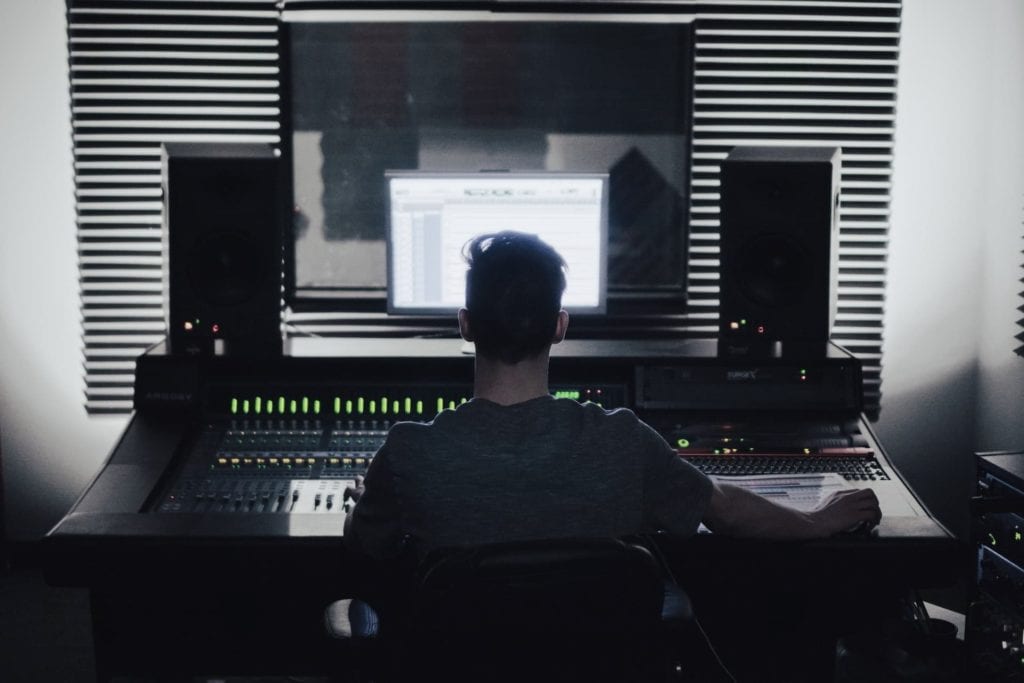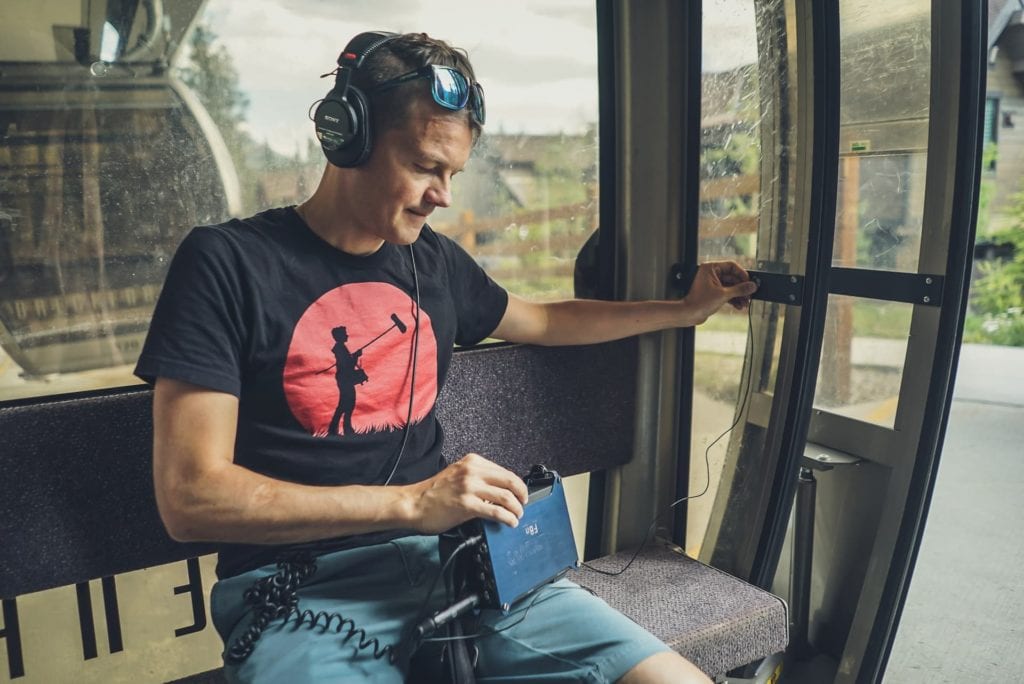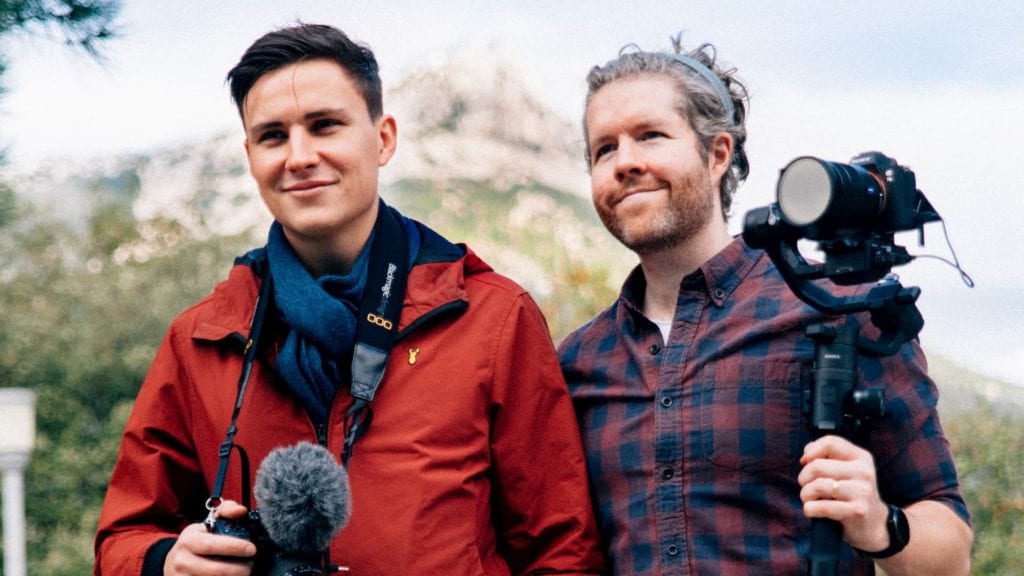How to Minimize Sound Design Costs in Your Film Budget
Sound design can be thought of in a few different ways. What does a sound designer do in film, and what is sound design in film? Well, first off, it differs from sound design for theater (or “theatre” for the purists out there) in that it does not occur live.
But there still exist considerations for location sound design for film and television: should we use lavalier mics, a boom pole, area mics, both, all of the above? An experienced pro who has worked with sound design in movies can answer these questions.
A lot of filmmakers will tell you that “sound is half the film.” And a lot of sound designers will tell you that it represents more than that, arguing that even if the visuals are less than crisp, if the film sounds amazing, the shoddy visuals will be chalked up to the film’s’ “aesthetic.”
At The Film Fund, we think it’s a balance of the two. That latter argument really only makes sense if the filmmaker intends for a particular aesthetic (whether during the production or in post). So, post-production sound design represents an absolutely crucial part of the process for independent filmmakers, but it should not take precedence over any other crucial line item of your short film budget.
If you need a free short film budget template to help organize your film post-production costs, click here.
This post will help you achieve professional film sound design without being cost-prohibitive for a low-budget independent short film production.
[fc id=’6′ type=’popup’][/fc]
Find a True Sound Expert

When going through your film crew list and film crew hierarchy, try to minimize the number of people on the crew wherever possible. As a director or producer, it’s an amazing thing to be able to create filmmaking jobs, but it’s also important to complete the film under budget. So this may entail removing or combining film crew positions.
An efficient way to do this is to find a sound technician who has experience in sound design as well as recording and mixing production sound. You don’t just want a boom op; you want someone who has experience with live sound design as well as post-production audio jobs.
This person should also be able to talk about their post-production workflow extensively. The right person will have no problem doing sound design for a documentary, sound design for horror films, or working closely with the director. They may even know some video editing.
Hiring someone like this may sound expensive, but if you can find someone who can do multiple aspects of production — meaning the boom op doubles as the composer as well as the post-production sound designer — you’ll have more luck negotiating a bundled rate for these services from the same person as opposed to hiring separately for each position.
Plugins and Foley

Hiring a post-production house in NYC may prove to be too expensive, but that doesn’t mean you can’t have access to great sound by hiring freelancers or smaller studios. If you find a “true sound expert” as we mention above, they will likely have access to their own sound libraries they’ve recorded over the years, saving you a ton of money in your budget.
You can find inexpensive or even FREE plugins and foley (sound effects) online from companies like Premium Beat’s collection of free sound effects.
If you’re *really* bootstrapping and cutting costs, you could also record your own foley and sound effects. After reading that post, you can do a deeper dive on industry-recommended post-production sound design tools in this post from The Pro Audio Files.
Equity

Another way to attract experienced crew to your project is to offer them a piece of what’s called “the back-end.” Now, this won’t be an attractive offer for an unbranded short film (in most cases), but it can be an interesting workaround for feature film budgets. If the crew believes the project will make money via a sale, then they’ll be willing to lower their usual rate if they’ll be receiving a cut of the profits.
Just make sure to talk to an attorney before granting equity in your project to anyone–ideally one who has experience with film.
Favors

This one’s difficult, but it’s where networking comes in. You know how they say “it’s who you know?” Well, that doesn’t always just refer to landing a big job to direct a project. It also means you should leverage the hell out of your network.
And it’s an excuse to pay it forward and help out on projects. If you scratched someone’s back on a project in the past, they’ll be more likely to help you out with yours.
Barter
If you can offer a unique service to someone, do it! I once had an attorney draw up a contract for me (Tom here, The Film Fund’s founder) in exchange for video editing his nephew’s college baseball highlight reel.
Go ahead. Make the deal, and make your film.
Recruit Talented Students
Students want experience. They want material for their reel that they can use to get future projects, as we all do. If you can pay them, great, do it. They’ll likely cost less than a “true sound expert,” but they may be just as talented as one, or on their way to becoming one.
Plus, they may make your project eligible for certain student film grants.
While these strategies will no doubt help you minimize costs for your short film’s’ post-production sound, you’ll still need a budget of some sort.
For a chance to receive up to $10,000 to make your short film, learn more about our funding opportunities.